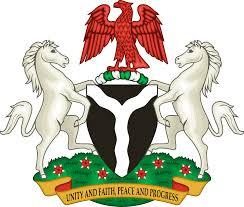The Federal Legislature in Nigeria, comprising the Senate and House of Representatives, plays a vital role in lawmaking, oversight, and representation. These lawmakers, commonly referred to as National Assembly members, have drawn attention over the years due to their high earnings.
This post explores the official salaries, allowance structure, and ranks of federal legislators in Nigeria for 2025. The salary structure is determined by the Revenue Mobilisation Allocation and Fiscal Commission (RMAFC)—although many extras are often shrouded in controversy.
Structure of the Federal Legislature
1. Senate (Upper Chamber)
-
109 Senators (3 from each state + 1 from FCT)
-
Headed by the Senate President
2. House of Representatives (Lower Chamber)
-
360 Members
-
Headed by the Speaker of the House
Ranks & Levels of Federal Legislators
|
Rank |
Chamber |
|
Senate President |
Senate (Presiding) |
|
Deputy Senate President |
Senate |
|
Speaker of the House |
House of Reps (Presiding) |
|
Deputy Speaker |
House of Reps |
|
Majority & Minority Leaders |
Both Chambers |
|
Chief Whips & Deputies |
Both Chambers |
|
Committee Chairpersons |
Both Chambers |
|
Regular Members |
Both Chambers |
FG Legislators’ Official Salaries in 2025
According to RMAFC, the official basic salaries of lawmakers are modest. However, allowances significantly increase their total take-home pay.
1. Senator
-
Annual Basic Salary: ₦2,026,400
-
Monthly Basic: ₦168,866
-
Total Official Salary + Allowances: ₦13 million – ₦15 million/year
-
Unofficial Estimate (Including Constituency Allowance): ₦120 million – ₦150 million/year
2. Member of House of Representatives
-
Annual Basic Salary: ₦1,985,212
-
Monthly Basic: ₦165,434
-
Total Official Salary + Allowances: ₦12 million – ₦14 million/year
-
Unofficial Estimate (With Constituency Package): ₦100 million – ₦130 million/year
Allowance Structure for Federal Lawmakers (2025)
|
Allowance Type |
Frequency |
Percentage or Range |
|
Furniture Allowance |
Once in 4 years |
300% of annual salary |
|
Housing Allowance |
Annual |
200% of basic salary |
|
Vehicle Maintenance/Fuel |
Monthly |
₦1 million – ₦1.5 million |
|
Domestic Staff Allowance |
Monthly |
₦300,000 – ₦500,000 |
|
Entertainment |
Monthly |
₦300,000 – ₦600,000 |
|
Recess Allowance |
Annual (during breaks) |
₦500,000 – ₦1 million |
|
Utilities |
Monthly |
₦100,000 – ₦250,000 |
|
Constituency Project Allowance |
Annual (Unofficial) |
₦70 million – ₦100+ million |
|
Estacode (Travel) |
Per Trip (USD) |
$900 – $1,200 per day (abroad) |
|
Duty Tour Allowance |
Per Trip (Local) |
₦50,000 – ₦100,000/day |
Breakdown: Example Monthly Take-Home (Estimated)
|
Earning Category |
Senator |
House Member |
|
Basic Salary |
₦168,866 |
₦165,434 |
|
Vehicle Maintenance/Fuel |
₦1,200,000 |
₦1,000,000 |
|
Domestic Staff |
₦400,000 |
₦300,000 |
|
Entertainment |
₦500,000 |
₦400,000 |
|
Utilities |
₦200,000 |
₦150,000 |
|
Monthly Total |
₦2.4 – ₦2.8 million |
₦2.0 – ₦2.5 million |
Note: This excludes bonuses like constituency project funds or special sitting allowances.
Non-Monetary Benefits
-
Luxury SUVs or 4x4 vehicles (official)
-
First-class flight tickets for official duties
-
Health care (home and abroad)
-
Security details
-
VIP access to public facilities
Controversy Around Legislators’ Earnings
Despite the official salary structure being publicly available, many Nigerians believe the true earnings are far higher, especially when "constituency projects" and "running costs" are included—most of which are not transparently documented.
In fact, former senator Shehu Sani once revealed that a senator earned over ₦13.5 million monthly in allowances, separate from salary.
FAQs on Federal Legislators’ Pay (2025)
Q1: Who determines lawmakers’ salaries?
A: The Revenue Mobilisation Allocation and Fiscal Commission (RMAFC).
Q2: Are allowances taxed?
A: No—most allowances are not taxed, unlike basic salaries.
Q3: What is the constituency allowance?
A: Funds allocated for lawmakers to carry out development projects in their constituencies—often not paid directly, but managed via MDAs.
Q4: Do lawmakers receive pensions?
A: No—Federal lawmakers are not entitled to pensions under current law unless previously in other public service roles.
Q5: Why is there public outrage over legislator pay?
A: Due to the perceived disparity between their earnings and national economic realities, poor transparency, and limited legislative productivity in some cases.
Conclusion
The official salary of federal lawmakers in Nigeria might seem moderate, but their total compensation package, including allowances and other perks, places them among the highest-paid public officials in the country.
With increasing calls for transparency and pay reforms, especially in the face of economic hardship, many citizens are watching closely how funds are allocated and spent in the legislative arm of government.











